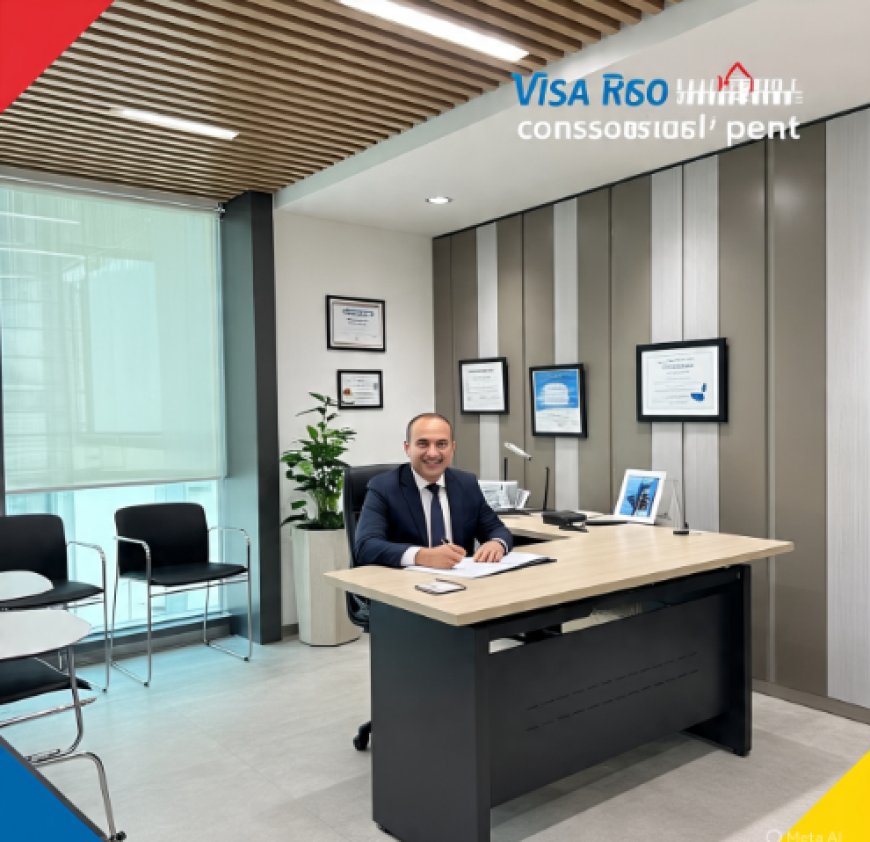Study Visa for Germany: How to Get Approved Fast and Without Delays
Planning to study in Germany? Learn how to get your study visa for Germany fast with a step-by-step breakdown of the process, required documents, financial proof, and expert tips to avoid common mistakes.

Why You Need a Study Visa for Germany
Anyone whos not a citizen of the EU, EEA, or Switzerland, and wants to study in Germany for more than 90 days, must apply for a German National Visa (Type D) specifically for educational purposes.
This visa is not just a formality. It proves that:
-
Youve been admitted to a recognized German institution
-
You can financially support yourself while studying
-
You are medically insured and legally permitted to reside in the country
Types of Study Visas for Germany
1. Student Visa
This is the most common visa type and is issued to students who already have an admission letter from a German university or foundation course.
2. Student Applicant Visa
If you havent received final admission or need to be in Germany for entrance exams, interviews, or university applications, this visa gives you limited time (usually 36 months) to complete those steps.
Documents Required for the Study Visa for Germany
To get your application approved without unnecessary delays, prepare the following documents accurately:
-
Completed visa application form
-
Valid passport (issued within last 10 years, valid for at least 12 months post-arrival)
-
Recent biometric photographs (white background, passport-size)
-
University admission letter (Zulassungsbescheid) or conditional acceptance
-
Proof of financial means usually a blocked account with 11,208 for one year
-
Proof of academic qualifications transcripts, degrees, certificates
-
Language proficiency certificates IELTS/TOEFL for English programs, or German language certifications
-
Health insurance certificate valid for the duration of your stay
-
Motivation letter clearly stating your academic purpose and career plans
-
Curriculum Vitae (CV)
-
Proof of accommodation (if available)
-
Visa fee payment (approx. 75)
All non-German or non-English documents must be translated and certified.
? Financial Proof: The Blocked Account
The blocked account (Sperrkonto) is one of the most important documents. It proves that you have enough money to support yourself in Germany.
Key Points:
-
Required amount: 11,208 per year (may be slightly adjusted yearly)
-
This amount is blocked in a German account and released monthly (~934/month)
-
Only recognized financial providers are accepted
-
Without this, your visa will not be approved
Students from countries like Pakistan, India, Nigeria, and Bangladesh are especially required to show this as part of the visa process.
Health Insurance Requirement
Health insurance is mandatory for all international students. You need two types:
-
Travel Insurance: For the period from your departure until university enrollment
-
Student Health Insurance (Public or Private): Once you start studying
Make sure your insurance certificate clearly shows the coverage period and benefits, and that it meets German visa regulations.
The Motivation Letter: Dont Undervalue It
The motivation letter can influence how fast your visa is approved. A well-written letter shows:
-
Why you chose this course and university
-
What your academic and career goals are
-
That you have a genuine plan to study and return or work after graduation
-
Your readiness in terms of finances, language, and cultural integration
Booking Your Visa Appointment
This is where many applicants lose time.
Tips to get your appointment quickly:
-
Register for an appointment immediately after receiving admission
-
Set reminders to check for open slots daily
-
Apply 34 months before your course starts
-
Have all documents ready before the interview date
The Visa Interview
Youll have to attend an interview at the German embassy or consulate.
Common questions include:
-
Why do you want to study in Germany?
-
Why this university and course?
-
How will you finance your stay?
-
What are your plans after graduation?
Tips:
-
Be honest and clear dont overthink
-
Be confident the embassy wants to see seriousness, not perfection
-
Take all originals + copies of documents in a well-organized file
Visa Processing Time: How Long Does It Take?
Normally, the processing time is 4 to 8 weeks, but it may vary depending on:
-
The time of year (peak months = longer delays)
-
Document completeness
-
Background checks or additional verifications
To speed up your process:
-
Avoid incomplete submissions
-
Dont wait for last-minute admissions start the blocked account and insurance early
-
Apply as soon as youre eligible
Post-Visa Arrival Steps in Germany
Once your visa is approved and you arrive in Germany, heres what to do:
-
Register your address (Anmeldung) at the local town hall within 2 weeks
-
Convert your visa into a residence permit at the Auslnderbehrde (Foreigners Office)
-
Enroll at the university with your admission letter and insurance
-
Open a German bank account (if not already)
-
Submit biometrics and get your residence card
Key Mistakes to Avoid
Avoid these common mistakes that cause delays or rejections:
-
Submitting incomplete or inconsistent documents
-
Providing insufficient proof of financial means
-
Failing to meet language or academic requirements
-
Booking visa appointment too late
-
Writing a generic motivation letter
-
Ignoring health insurance requirements
-
Waiting until the last minute for translations or notarizations
Summary: Fast Approval Tips at a Glance
|
Action |
Tip |
|
Start early |
Begin 68 months before intake |
|
Double-check documents |
Prepare copies, translations, notarizations |
|
Use a blocked account early |
Dont wait for admission to open it |
|
Craft a strong motivation letter |
Personalize it; dont copy templates |
|
Book visa appointment in time |
Dont wait for university reminders |
|
Organize interview documents neatly |
Originals + copies in order |
Getting a study visa for Germany fast isn't about shortcuts its about being prepared, organized, and intentional. Germany offers a chance to gain world-class education, build an international career, and grow personally in a thriving global environment.
Start early, stay consistent, and focus on the process because every document you prepare today brings you one step closer to your future in Germany.

































